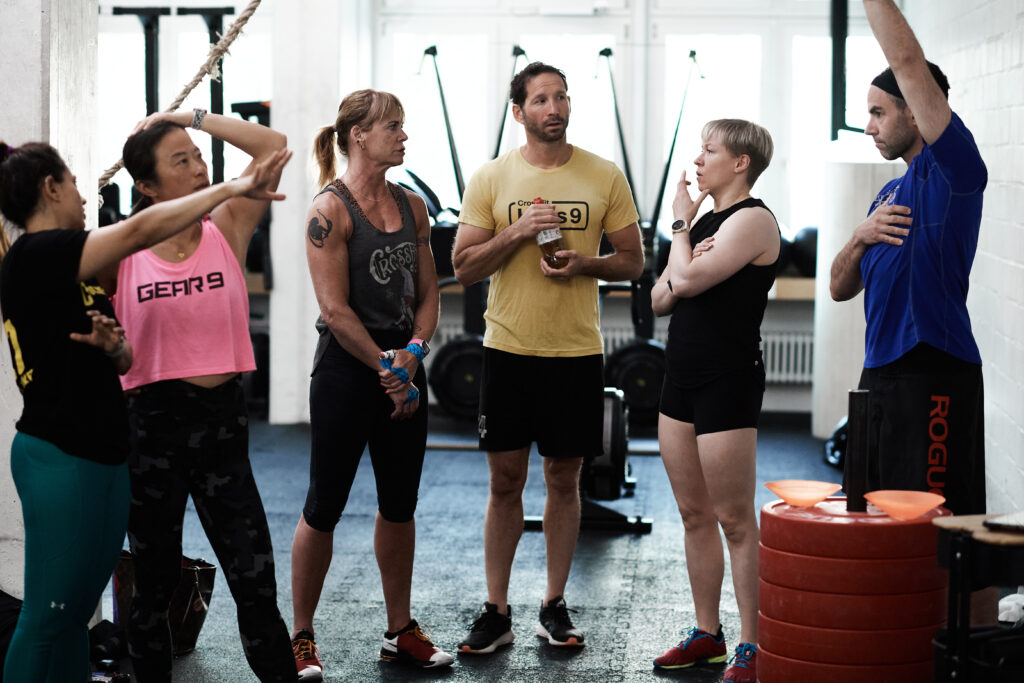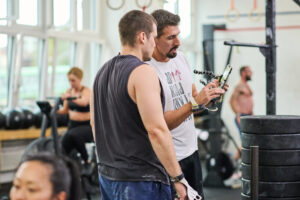
How long does it take to change a habit is one of the most common questions we hear from new members at CrossFit Kreis 9. Or actually, they ask us how long does it take to see a change. But as long as there is no new habit, the change will be only temporary.
You may have heard the old “it takes 21 days to form a habit” rule. It’s been repeated so often in books, articles, and social media posts that it feels like a universal truth. But the reality is much more complex. Research, especially the well-known 2009 study by Dr. Phillippa Lally and her team at University College London, shows that forming a habit — or breaking an old one — takes anywhere from 18 to 254 days. That’s a huge range, and for good reason: the speed of habit formation depends on the complexity of the habit, your starting point, your mindset, and your environment.
In fitness, this means that completing your first month of training is an important milestone — but it’s not the finish line. Habits are built through consistency, not intensity. You can’t “cram” your way to better health like you might for an exam. The goal is to keep showing up long enough that the behavior becomes part of your identity.
Why asking “how long does it take to change a habit” is the right question
When most people join a gym, they focus on results — losing weight, building strength, feeling more energetic. And while results are important, they don’t happen without the underlying habits to support them. If you’ve ever stopped going to the gym after a few weeks, you already know that willpower alone isn’t enough.
That’s where habit formation comes in. Your health and fitness aren’t determined by what you do in one intense month — they’re shaped by the things you do most days, for years. This is why at CrossFit Kreis 9, we focus on building routines that last.
The three phases of habit change
When we work with members, we see habit change in three phases:
- Initiation – Motivation is high, but the habit feels unfamiliar. You’re still figuring out your routine, your schedule, and how training fits into your life.
- Consolidation – The habit starts to feel easier. You don’t have to think so hard about if you’re going to train — you just do it.
- Identity – You stop seeing exercise as something you “should” do and start seeing yourself as someone who trains regularly because it’s simply part of who you are.
Most people underestimate how long does it take to change a habit from initiation to identity. And that’s why so many quit too soon.
How to make habits stick
At CrossFit Kreis 9, we help our members in four key ways:
- Start small
Instead of overhauling your entire lifestyle overnight, focus on one or two changes at a time. Commit to attending three classes per week before thinking about extra workouts. - Anchor new habits to old ones
“Habit stacking” makes it easier. For example, leave work and head directly to the gym instead of going home first. - Track progress
We use goal reviews and InBody scans to help members measure progress in strength, body composition, and overall fitness. - Surround yourself with support
In a community where healthy habits are the norm, sticking with them is easier.
Replacing old habits with new ones
Sometimes how long does it take to change a habit depends on whether you’re breaking an old one at the same time. Swapping the “go home and sit on the couch” habit for “head to the gym” can take just as much time as starting from scratch. Making the old habit harder to do and the new one easier is key.
The real takeaway
When you stop counting days and start enjoying the process, the habit often sneaks up on you — one day, you’ll realize it feels strange not to train. The better question than “how long does it take to change a habit” might be: How can I make this something I’ll keep doing for years?
At CrossFit Kreis 9, we’ll guide you through that journey with structure, accountability, and the right level of challenge — so your healthy habits become part of who you are, not just what you do.
Are you ready to start? Book a free consultation now.




